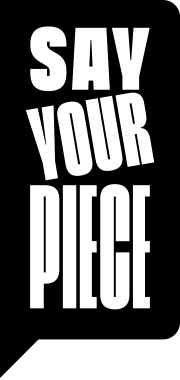Additional Resources
CONSIDERING POWER DYNAMICS
Power is a person's ability to exert influence and control over the people, environments, and events around them. Power dynamics in learning environments can have significant impacts on the ability of people to think for themselves. The industrial model of teaching positions the teacher standing in front of the classroom as the sole source of all knowledge and expertise. The teacher determines the materials to be taught, the teaching methodologies adopted, and the course’s final objectives. Adult educators must consider the issue of power in the classroom and implement a power-sharing model that best suits the group.
Power Dynamics in Adult Education
Managing Power Dynamics with Creative Training Methods
Power Dynamics: The Hidden Element to Effective Meetings
NAVIGATING DIFFICULT STORIES
Everyone must have the opportunity to make informed choices about workshop participation and the content, production, and use of their stories. In addition, telling others what has taken place in one’s life can expose past traumas and trigger emotion. The following resources may help you navigate trauma, healing, and ethical issues.
Ethical Practice (Transformative Story)
Trauma-Informed Storytelling (NASMHPD)
Storytellers Bill of Rights (Immigrant Rising)
FRAMING A STORY
Framing refers to the way an issue is defined, packaged, and presented in a story. It tells us what information is important and what can be ignored. Think of the difference between a portrait and a landscape. In a story told as a portrait, audiences learn a great deal about a single person or event. In a landscape story, audiences gain a broader view that includes the context or environment in which the person or event exist. Learn more about framing from the Berkeley Media Studies Group.
EXPLORING PRIVILEGE
Privilege is unearned access to resources and power that is only readily available to a person because of the social groups to which they belong. The following resources offer activities that can help participants gain a better understanding of their own power and privilege.
Exploring My Power and Privilege
A Guide to Discussing Identity, Power and Privilege
Introduction to Power and Privilege
WARMING UP
A warm-up is any activity that can be used to get people in the mood for interacting and performing. Sometimes these are called ice breakers.
Warm-up Collection #1
Warm-up Collection #2
Warm-up Collection #3
HOSTING A STORYTELLING EVENT
Don’t let all that practice go to waste! Consider organizing regular storytelling gatherings or host a storytelling event. These resources provide helpful planning tips.
Facilitating a Story Circle
StorySlam Protocols
Sample Guide to Hosting A Storytelling Event
GROWING AS A STORYTELLER
After learning the basics of storytelling, you might be ready for more! Check out these additional learning resources on storytelling.
Rhythm, rhyme, repetition, reasoning and response in oral storytelling
Storytelling School (The Moth)
STORYTELLING FOR SOCIAL JUSTICE
Stories are a powerful part of fighting for justice. These resources can help you determine how to make stories part of your change strategy.
Storytelling and Social Change: A Strategy Guide (Working Narratives)
Transformative Storytelling
Story-based Strategy (Center for Story-based Strategy)
Frameworks Academy (Frameworks Institute)
